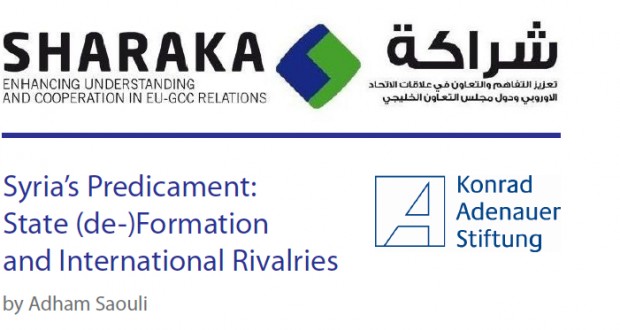Syria’s Predicament: State (de-)Formation and International Rivalries
Syria’s Predicament: State (de-)Formation and International Rivalries https://euromediter.eu/wp-content/themes/corpus/images/empty/thumbnail.jpg 150 150 Euro Mediter https://euromediter.eu/wp-content/themes/corpus/images/empty/thumbnail.jpgIntroduction
The Syrian uprising, which emerged as a peaceful protest against Bashar Asad’s regime in March 2011, has transformed into a fully-fledged civil war. The civil war has so far cost the lives of more than 190,000 people, turned more than three million people into refugees, and damaged most of Syria’s economic infrastructure. More detrimental and consequential for Syria’s political future, however, is the fracturing of its social – sectarian, ethnic, and regional – fabric.3 In a period of two years, Syria has morphed from a significant political actor in Middle East politics – an actor which directly influenced the political dynamics of neighboring Lebanon, the Palestinian territories, and Iraq – into a battlefield for regional and international rivalries.
Syria’s war raises important questions about the interaction between the domestic and external dimensions of the conflict. What are the main areas of contention, and how do they relate to regional and international dynamics? Why has the conflict developed into a regional and international battle, and who are the main actors in this rivalry? And, finally, what are the realistic options for ending the Syrian war? The aim of this paper is to answer these questions. It divides into three main sections.
In the first, I examine the domestic origins of the Syrian crisis by focusing on the process of state formation and deformation in Syria. In the second section, I consider the main areas of contention that shape the Syrian civil war and its regional and international dimensions.
Finally, I assess the conditions under which Syria – as a divided state in a polarized region – can end the war. In the absence of a military solution to the war in Syria, a political solution, I argue, may be the only hope for ending the crisis; but such a solution is fraught by varying domestic and external interests in Syria.
Click here to read the full document (by Adham Saouli).





